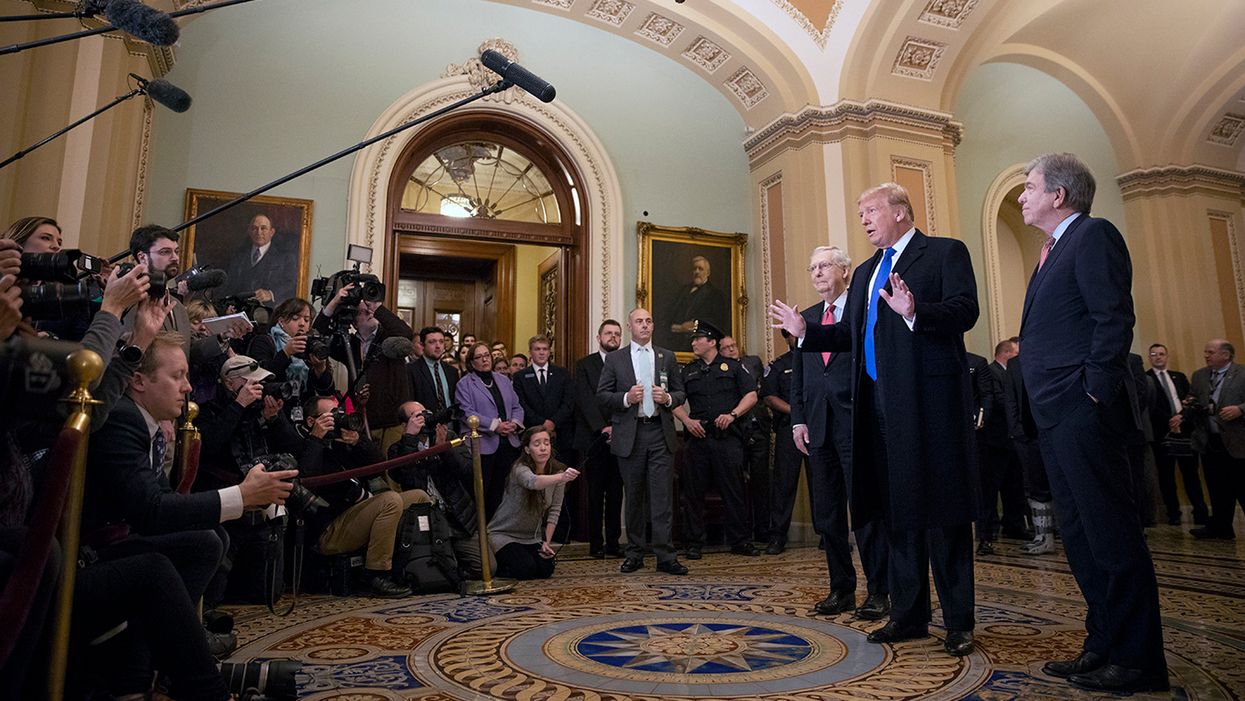Here are 10 vulnerable Senate seats that could flip in the 2020 election


As Election Day approaches, poll projections show that several senators' seats, both Democratic and Republican, may be up for grabs on Election Day. Although poll results signal that Democratic presidential nominee Joe Biden is dominating the presidential race, his edge over President Donald Trump still may not be enough for some Democratic lawmakers to hold their seats. Here are the Senate seats that are most likely to flip with the upcoming general election.
1. Alabama: Sen. Doug Jones (D-AL), incumbent: It is no secret that Alabama is a heavily red state. Tommy Tuberville — his Republican, Trump-backed opponent vowing to join the president's fight to "drain the swamp" — has taken aim at Jones in several political ads. Since Jones only managed to edge ahead of his scandalized Republican opponent Roy Moore by a narrow margin in 2018, there is strong speculation that the absence of that advantage might cost him the 2020 Senate race.
2. Arizona: Sen. Martha McSally (R-AZ), incumbent: Although Arizona is typically a Republican-dominated state, that could change in November. The latest polls show growing signs that Arizona could turn blue with the general election. In addition to the poll results, McSally also found herself at the center of conservative criticism following her Senate debate last week. The Republican lawmaker evaded questions about whether or not she was proud of her decision to support Trump. She never directly answered the question.
Martha McSally fumbling over herself to defend her support for Donald Trump. https://t.co/kvJgZ008n0— Matt McDermott (@Matt McDermott) 1602039214
3. Colorado: Sen. Cory Gardner (R-CO), incumbent: Based on poll projections, there are strong indications that Colorado could be going blue in November, which will make it difficult for Gardner to retain his Senate seat. Although Gardner has made an effort to appeal to independent voters who could split the upcoming ticket, there are still multiple issues jeopardizing Gardner's seat. His inability to offer solid commitments on critical issues, including Trump's nomination of a Supreme Court justice just weeks before the upcoming election, could also be problematic for his re-election.
4. Georgia: Sen. David Perdue (R-GA), incumbent: Not only are Georgia Republicans concerned about Perdue's seat, but also their hold on the entire state due to the growing diversity in Georgia. If Democrats manage to turn the state blue, the first-term senator could be facing an uphill battle being re-elected. A Biden win could increase the possibility of Perdue's Democratic opponent Jon Ossoff unseating him. However, Perdue may have a better chance of maintaining his seat if the race goes to a run-off.
5. Iowa Sen. Joni Ernst (R-IA), incumbent: The Iowa presidential race is quite different than when Trump carried the state by a sizable margin in 2016. This time around, the race is so close the election could swing either way which could be problematic for Ernst's re-election. In fact, the Quinnipiac University poll released the first week of October projected a 5% lead for Democratic Senate candidate Theresa Greenfield.
6. Maine: Sen. Susan Collins (R-ME), incumbent: With recent polling results under 50%, the four-term senator could be near the chopping block as Election Day approaches. Amid Trump's Supreme Court nomination of Amy Coney Barrett, Collins is facing more scrutiny for her 2018 vote in support of Brett Kavanaugh. Latest projections have shifted the election from a possible toss-up to a win more favorable for Collins' Democratic opponent.
7. Michigan: Sen. Gary Peters (D-MI), incumbent: While polls suggest the presidential race may result in a blue wave in Michigan, the Senate race remains close. In fact, a New York Times/Siena College poll released Monday showed Peters with only a 1% edge over his Republican opponent John James based on likely voters. Democrats' ad spend has also been criticized where Peters is concerned. Republicans have noted that Democrats' spending on advertisements for Peters' re-election campaign could be cause for concern. According to a CNN analysis of CMAG data, Democrats have spent approximately $55 million.
8. Montana: Sen. Steve Daines (R-MT), incumbent: Despite multiple Senate Republicans vulnerability ahead of the upcoming election, Daines' odds appear to be a bit more favorable, according to CNN.
9. North Carolina: Sen. Thom Tillis (R-NC), incumbent: The Republican lawmaker found himself at the center of controversy when he tested positive for COVID-19 just days after attending Trump's Rose Garden event for Supreme Court nominee Amy Coney Barrett. Like many Republicans, Tillis also did not to take mask-wearing as seriously as he should have. Democratic opponent Cal Cunningham has faced backlash over a renewed sex scandal, but poll projections indicate a close race.
10. South Carolina: Sen. Lindsey Graham (R-SC), incumbent: The South Carolina Senate race has garnered national attention due to the growing threat Democratic Senate candidate Jaime Harrison poses. In fact, Harrison has become one of the biggest Senate contenders in the United States — breaking down fundraising barriers that even Graham, himself, expressed concern about. On Monday, The New York Times reported that Harrison has raised a record-breaking $57 million from July to September. As a result of Harrison's fundraising haul, Graham has admitted to being overwhelmed financially and even appealed to his supporters during a recent Fox News interview.
While there are Democratic senators at risk of losing their Senate seats, reports suggest Republican lawmakers are most vulnerable.